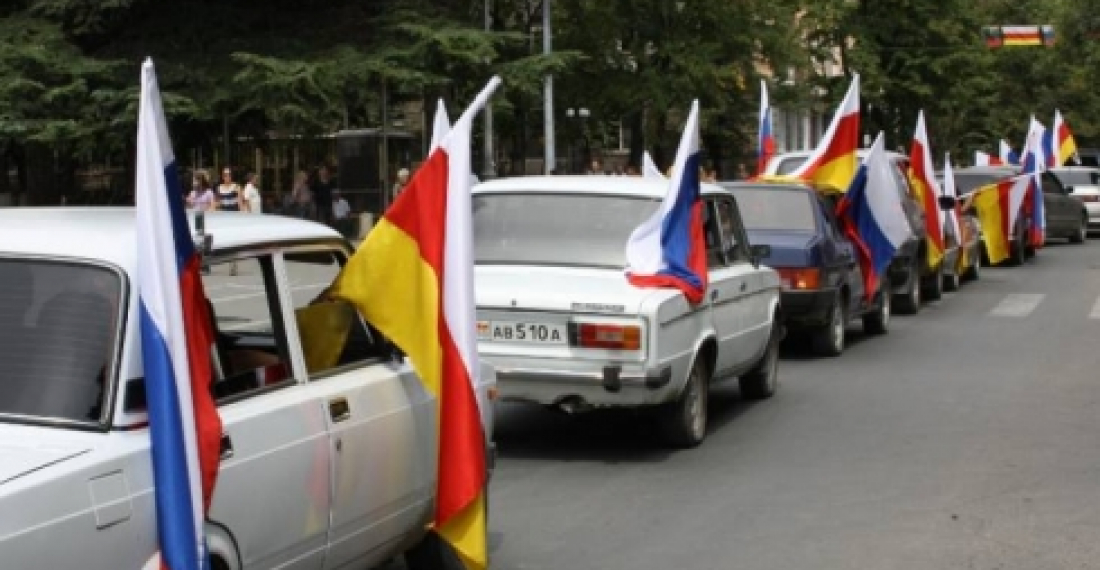Leader of Georgia's breakaway region of South Ossetia, Leonid Tibilov, has proposed a referendum on a constitutional change that would allow de facto president to request Moscow South Ossetia's accession to Russia.
Addressing breakaway region's parliament on February 19 Tibilov suggested that it would be a more flexible form of achieving South Ossetia's "dream" of joining Russia than holding a referendum directly on whether to become or not part of Russia. He indicated that this "special form" of referendum will give Tskhinvali "constitutional basis" to initiate with prior agreement with Moscow accession process whenever appropriate.
South Ossetia's president voiced concerns amid the demands of Western leaders to terminate Russia's decision on recognizing the republic's independence in late August 2008.
"We are also concerned by a sharp deterioration of the international situation, the events in Ukraine, in Syria and the whole Middle East, and NATO's approaching Russia's borders and the continuing bellicose anti-Russian and anti-Ossetian rhetoric of our southern neighbors," he said.
"In these conditions we feel sharper the need to fulfill our old dream - reunification with the Great Russia and solving the problem of the divided Ossetian people. It is evident that only this way we will gain long-term guarantees of our security and peaceful development for dozens and hundreds of years," Tibilov stressed.
Tibilov said an issue could be put up for the referendum on including in the constitution a special norm allowing the president to submit a proposal to Russia on accession to the country as a "new subject."
The republic will get firm constitutional grounds to initiate a process on joining Russia and will not force the Russian side to immediately react to the results of the referendum. Further, South Ossetia will have a possibility following coordination with the Russian side to announce an initiative to join Russia without any delay.
source: commonspace.eu with agencies






